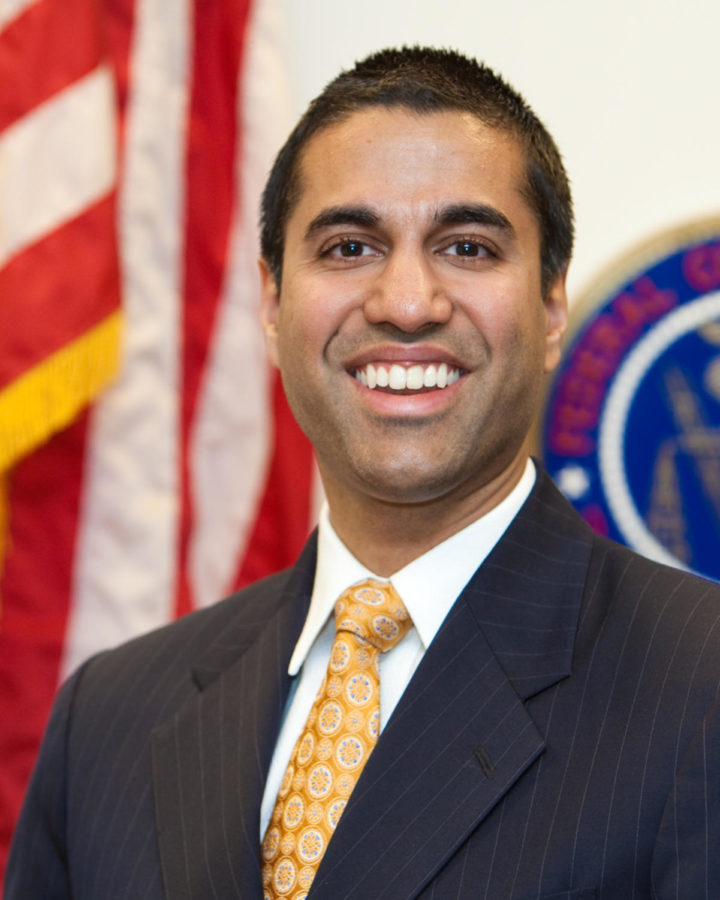Editorial: States must protect net neutrality
Photo Courtesy Wikimedia Commons
Ajit_V._Pai_headshot.jpg
January 31, 2018
Last week, Montana Gov. Steve Bullock took lead by signing an executive order that necessitates all internet service providers to abide by net neutrality principles to work under state agreements. The agreement will force telecommunication companies to ensure equal access to all content on the internet and bars them from blocking websites or charging more for faster internet amenities.
Gov. Bullock has set an example for other states by signing this executive order. In order to reinforce the importance of net neutrality for education, he signed the order in front of high school students in Helena, Montana.
Montana became the first state to set its own net neutrality standards to abide by telecommunications companies since the Federal Communications Commission (FCC) ended the popular policy in December 2017.
Net neutrality is important and we want other state officials to stop looking at folks in Washington and learn from Steve Bullock. Other states should take this bold step to safeguard net neutrality ethics.
The end of net neutrality will not only affect the general consumers, but can also pose a perilous impact on online education systems and students who are connected online.
Internet providers can limit a student’s access to several free education resources, making them deliberately slow so they’re unwatchable or even block access to competitors’ sites.
Reversing net neutrality rules could cost more to students because internet providers can divide the content into fast and slow lanes and charge more for higher speeds and access to certain websites. In this scenario, students will be paying more for the educational material that were once freely accessible.
The online education system is the greatest revolution in today’s education. Approximately, 35 million U.S. students are now connected online from each part of the country, and that number is gradually increasing.
This has transformed the education system by introducing programs such as distance learning where students are learning at their own pace and comfort without paying hefty fees and attending universities and colleges.
In today’s modern education, students use video conferences and watch online lecture videos to complete their projects outside of class. Truly, it has provided students with a plethora of resources from which they can learn anything, anytime, anywhere.
The end of net neutrality will affect online education systems and make students’ lives harder and more expensive.
That is why states must understand its importance and stand for it like Montana already has.






